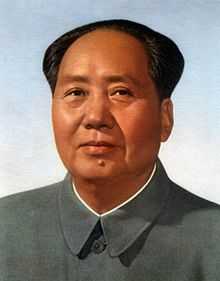Faiz Ahmad
| Faiz Ahmad فيض احمد | |
|---|---|
 | |
| Faiz Ahmad, founder of the Afghanistan Liberation Organization. | |
| Leader of the Afghanistan Liberation Organization | |
| In office 1973 – 12 November, 1986 | |
| Preceded by | Party established |
| Leader of the Progressive Youth Organization | |
| In office Unknown – 1973 | |
| Personal details | |
| Born | 1946 Kandahar, Kingdom of Afghanistan |
| Died | 12 November, 1986 Peshawar, Pakistan |
| Political party | ALO |
| Spouse(s) | Meena Keshwar Kamal |
Faiz Ahmad (1946 – November 12, 1986) (Persian: فیض احمد) was the founding leader of the Afghanistan Liberation Organization (ALO), a Marxist-Leninist organization established in Kabul.
Ahmad was born in Kandahar, Afghanistan. He attended primary and secondary schools in Kandahar before coming to Kabul to enter Naderia High School where he became involved in the far-left movement after reading some works of Marx and Lenin.
Akram Yari, a leader of the Maoist movement in Afghanistan, was Ahmad's teacher in Naderia High School; he deeply influenced Ahmad. Yari was leader of Progressive Youth Organization (PYO), a Maoist organization which was formed on October 6, 1965. Later, Ahmad broke with PYO and formed the Revolutionary Group of People of Afghanistan.
After graduating from high school, Ahmad entered the Medical Faculty of Kabul University. It was in those years that he established the Revolutionary Group of People of Afghanistan which was later named Afghanistan Liberation Organization (ALO).
In 1976, Ahmad got married to Meena Keshwar Kamal.[1]
During the onset of the Soviet invasion of Afghanistan, Faiz Ahmad, instrumental to the reorganization of the Afghanistan Liberation Organization, set the slogan "All resources at the service of liberation fronts!" as the interim objective of all "revolutionary struggle". During this time and under Faiz's leadership, the ALO decided to join the Islamist political forces in forming united fronts against the Soviet Union and the PDPA government.
He wrote Mash'al-i Rehayi (The Beacon of Emancipation, an ALO political-theoretical publication) where he analyzed the situation and established political and strategic lines for ALO activities.
Ahmad was assassinated along with 6 other ALO members by Gulbuddin Hekmatyar's Hezb-i-Islami on November 12, 1986 in Peshawar, Pakistan. ALO members have accused the Pakistan Inter-Services Intelligence (ISI) of complicity in the killings.
References
External links
| Part of a series on |
| Maoism |
|---|
 |
|
Basic concepts
|
|
Maoist parties by country
|
|
Key books
|
|
Related topics
|
|
|